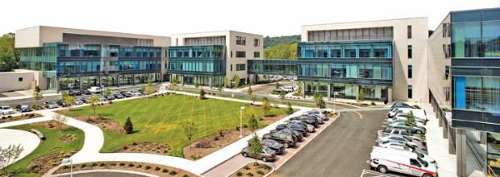Spotlight on COVID-19 antibody therapies after Trump's recovery

The spotlight remains on the potential of antibody therapies as a possible way out of the COVID-19 pandemic crisis, with the US government investing millions in a hopeful from AstraZeneca and president Donald Trump recovering from coronavirus after receiving a rival therapy from Regeneron.
Thanks to a drug cocktail including Regeneron’s antibody therapy, Trump says he is back on his feet after becoming infected with the virus around the end of last month.
Trump has hailed the Regeneron therapy as a cure for the virus, but the company’s CEO Leonard Schleifer was quick to point out that the scientific evidence is not there to support the claim.
Regeneron’s therapy is based on two antibodies the company has developed to neutralise the virus.
The thinking is that by having a double therapy, the chances of the virus developing resistance to both parts of the drug are reduced.
Like rivals Eli Lilly, Regeneron is in talks with the FDA to get an Emergency Use Authorisation based on the data it has gathered so far.
But CEO Leonard Schleifer said in a TV interview that there is a long way to go before the drug is fully approved.
Schleifer told CBS News’ Face the Nation: “So the president's case is a case of one, and that's what we call a case report, and it is evidence of what's happening, but it's kind of the weakest evidence that you can get.
“The real evidence has to come about how good a drug is and what it will do on average has to come from these large clinical trials.
“It's just low down on the evidence scale that we really need.”

Regeneron CEO Leonard Schleifer
Antibody therapies could also be used prophylactically, to protect people at high risk of getting the disease such as healthcare workers, or vulnerable people in areas where there are large numbers of cases.
AstraZeneca is to begin phase 3 trials of a long-acting antibody therapy combination in the US and other countries, to prevent infection happening and as therapy for those already infected.
AZ’s long-acting antibody (LAAB) combination, AZD7442, will advance into two phase 3 clinical trials in more than 6,000 participants at sites in and outside the US in the next few weeks.
The LAABs have been engineered with AstraZeneca’s proprietary half-life extension technology to increase the durability of the therapy for six to 12 months following a single administration.
The combination of two LAABs is also designed to reduce the risk of resistance developed by the SARS-CoV-2 virus.
The LAABs have been engineered with AstraZeneca’s half-life extension technology to increase the durability of the therapy for six to 12 months following a single shot.
Like Regeneron’s therapy the combination of two LAABs is also designed to reduce the risk of resistance developed by the SARS-CoV-2 virus.
The US government agency, the Biomedical Advanced Research and Development Authority (BARDA) has invested $486 million in the project.
One trial will test whether AZD7442 can safely and effectively prevent infection in up to 5,000 people, and the second trial will test post-exposure prophylaxis and pre-emptive treatment in around 1,100 people.
AZ is planning additional trials to evaluate AZD7442 in approximately 4,000 patients for the treatment of COVID-19.
The company plans to supply up to 100,000 doses starting towards the end of 2020 and the US Government can acquire up to an additional one million doses in 2021 under a separate agreement.












